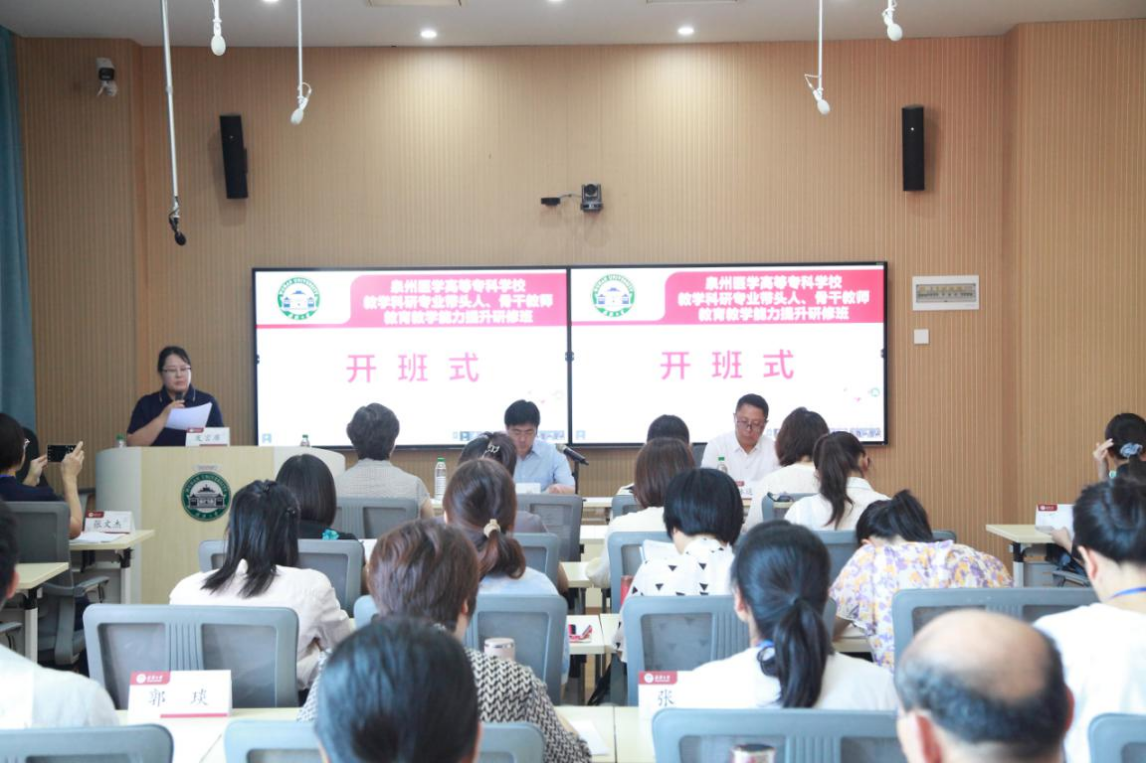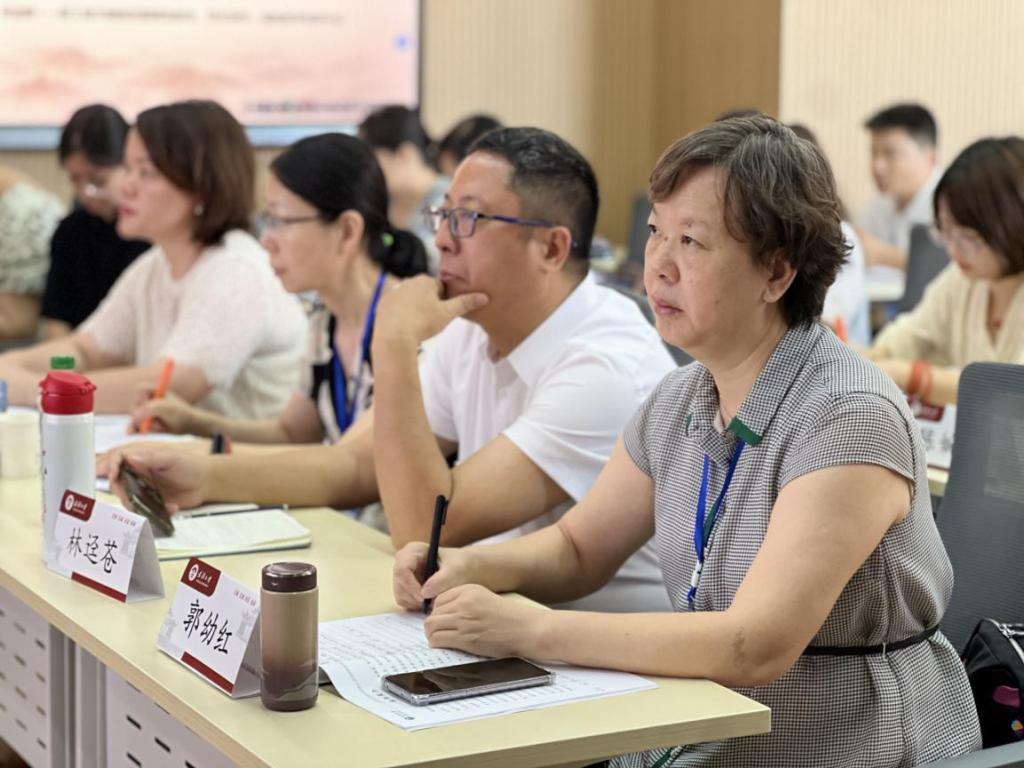From August 8th to 13th, the Teacher Development Center of our school organized 32 program leaders and key faculty members to participate in the second customized special training program on teaching competency enhancement at Wuhan University. The training, hosted by the Continuing Education College of Wuhan University, focused on medical education, covering topics such as medical talent cultivation programs, the development of new medical education reform courses, classroom teaching methods and artistry, medical education research topics, and SCI paper writing techniques.

Associate Professor Liang Shanshan from the School of Stomatology at Wuhan University delivered a lecture titled "How to Create a Dynamic Classroom." Drawing on her years of experience as a clinical educator, she shared methods and insights for fostering an engaging classroom environment. Nine participants were selected for live teaching demonstrations, with Professor Liang providing detailed feedback and targeted guidance for each.
Researcher Zhu Junyong, Secretary of the Party Committee at the School of Public Health, Wuhan University, presented a special lecture on "Design and Implementation of Medical Talent Cultivation Programs." Starting with a reflection on medical education in the new era, he encouraged participants to rethink and deepen their understanding of medical education before sharing practical approaches to designing and implementing talent development plans in higher medical education.
Associate Professor Gong Yang from Zhongnan Hospital of Wuhan University, leveraging his extensive experience of publishing over 100 SCI papers, shared "Methods and Techniques for Writing Medical SCI Papers." He provided a comprehensive guide on pre-submission considerations, journal selection tools, writing sequence and techniques for different sections, submission tips, and alternative expressions for high-frequency words.
Associate Professor Yin Jun from the School of Basic Medical Sciences at Wuhan University shared practical insights on "Establishment and Innovation of New Medical Education Reform Courses." Using her experience in developing the "Neuroscience" course, she discussed her teaching philosophy, blended learning approaches, and innovative techniques, emphasizing a "patient-centered, system-based, and competency-oriented" medical education reform.
Dr. Liu Chang, Deputy Chief Physician at Zhongnan Hospital of Wuhan University, analyzed teaching techniques in "How to Deliver an Excellent Medical Lecture," focusing on three aspects: content organization, lecturing skills, and expressiveness. He particularly addressed key questions such as "what to teach, how much to teach, and how to teach," while clarifying the differences between key and challenging teaching points.
Professor Du Li, a renowned educator from the School of Economics and Management at Wuhan University and a recipient of the Hubei Provincial Teaching Excellence Award, delivered a session on "Enhancing Classroom Teaching Methods and Artistry in Higher Education." Integrating her rich teaching experience and insights from national teaching competitions, she demonstrated actual teaching examples to help participants better understand the "Golden Course" standards (highlighting innovation, challenge, and depth) and the evaluation criteria of national teaching competitions.
Deputy Director Lu Zhanghong from the Teaching Office of Renmin Hospital of Wuhan University conducted a session on "Topic Selection and Research Design in Medical Education Research" using a collaborative group inquiry model. Participants were divided into six discipline-based groups to brainstorm research topics. Director Lu provided theoretical guidance and practical analysis on research background, content, implementation, methods, indicators, and expected outcomes for each group’s proposal.
Additionally, under the careful arrangement of the Wuhan University project team, participants visited the Wuhan University History Museum, a provincial-level patriotic education base. Through the docent’s introduction, they learned about the challenges in Wuhan University’s development history and the dedication of predecessors who persisted in education and talent cultivation during the Anti-Japanese War, offering a vivid and profound lesson on teaching ethics.
This training program was distinctive and highly practical, helping faculty members gain insights into advanced teaching concepts and skills while clarifying directions for medical research development. It inspired our teachers to fully embrace their "ownership spirit," remain true to their original aspirations, and continue making new contributions on the path toward establishing an application-oriented medical undergraduate institution, achieving mutual growth for both the school and individuals.

Translated by Zhu Xuanxuan;Proofread by Zheng Shuyun







